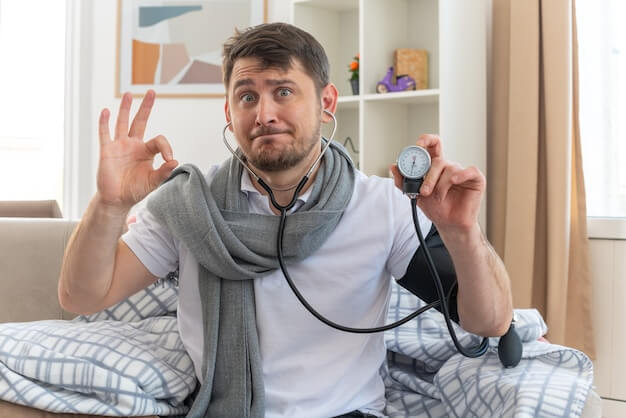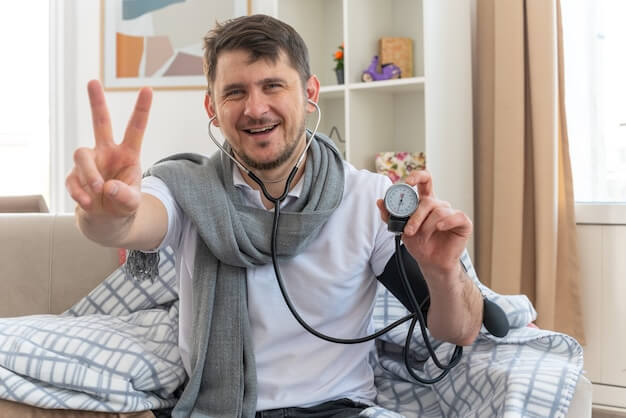Healthy
Facing critical hypertension, how do we do well in self-care
Critical hypertension, also known as borderline hypertension, refers to the blood pressure value between normal blood pressure and diagnosed hypertension. The standard set by the World Health Organization is that the normal blood pressure of adults is: systolic blood pressure<130mmHg, diastolic blood pressure<80mmHg. The World Health Organization defines the standard of hypertension as: 130/80mmHg or below for normal adults, 140/90mmHg or above for hypertension, and the critical hypertension is between the above two (130-139/85mmHg).

Critical hypertension, also known as borderline hypertension, refers to the blood pressure value between normal blood pressure and diagnosed hypertension. The standard set by the World Health Organization is that the normal blood pressure of adults is: systolic blood pressure<130mmHg, diastolic blood pressure<80mmHg. The World Health Organization defines the standard of hypertension as: 130/80mmHg or below for normal adults, 140/90mmHg or above for hypertension, and the critical hypertension is between the above two (130-139/85mmHg).
If the blood pressure measured before getting up in the morning for three consecutive days exceeds 140/90 mmHg, it can be diagnosed as hypertension, but it is not equivalent to hypertension. Hypertension is a disease whose etiology is not yet very clear and whose main clinical manifestation is hypertension, accounting for 90% of all diseases with elevated blood pressure. Another 10% were secondary hypertension.

Clinical characteristics of borderline hypertension
This disease is characterized by slightly high blood pressure and no organic damage to important organs, such as heart, brain and kidney, but it is easy to develop into hypertension. Clinical observation shows that about 71.5% of borderline hypertension patients are easy to develop into hypertension, and borderline hypertension patients are 2-5 times more likely to develop into diagnosed hypertension than normal hypertension patients, while only 11.1% of normal people. The morbidity and mortality of cardiovascular complications were more than twice as high as those of normal blood pressure patients. Its complication is cerebral hemorrhage, cerebral thrombosis, coronary heart disease, and the mortality rate is similar to that of hypertension patients, and is significantly higher than that of normal people. Because it has no organic damage and lacks specific symptoms and signs, it is easily ignored. The prevention of such hypertension is the same as that of general hypertension.
Critical Hypertension Treatment
For patients with hypertension who have been diagnosed clearly, they should take persistent treatment measures, including the use of drugs. No one disagrees any more. However, people have long held different views on whether patients with blood pressure exceeding normal standards and with mild symptoms need treatment.
Patients with borderline hypertension should try to take non drug treatment when they begin to receive treatment, such as reducing sodium intake, reducing weight and taking proper physical exercise, and be persistent, which will make it more difficult to effectively control blood pressure.
- Self treatment
Generally, antihypertensive drugs may not be used or used less for borderline hypertension. The positive measures are scientific and appropriate exercise, supplemented by reasonable diet, good rest and optimistic mood. The exercise content of borderline hypertension patients is mainly relaxation and endurance exercises, and it is more appropriate to take Taijiquan, walking, jogging, health Qigong (relaxation exercise), health care gymnastics (such as antihypertensive meditation exercise), etc. Exercise time can be once a day in the morning and evening, each time measuring about 30 minutes. In the morning, you can walk for 10 minutes or jog, then walk for a few minutes, do a set of decompression and relaxation exercises, and finally finish the relaxation exercise. Generally, jogging is not suitable in the evening. You can first play Taijiquan, do medical exercises and Qigong, and finally walk for 10 minutes. Patients with borderline hypertension should breathe smoothly and naturally without suffocation during exercise; The movement should be relaxed and slow, and do not force with weight; Do not bend down; Get rid of thinking and relax your mind.
- Prevention and control methods
One is to lose weight. Second, limit salt intake. You should eat less salt, pickles, pickles, etc. Third, quit smoking. Fourth, limit alcohol consumption. Fifth, increase exercise. Walking, brisk walking, jogging, fast running, swimming and mountain climbing are suitable for sports, and the amount of exercise is gradual.
- Self management
① Measure blood pressure regularly, at least once every 1-2 weeks.
② The treatment of hypertension should adhere to the "three hearts", that is, confidence, determination and perseverance. Only by doing so can we prevent or delay the damage to important organs of the body.
③ Take antihypertensive drugs regularly, and do not reduce or stop the drug at will. You can adjust it under the guidance of the doctor and the current condition to prevent blood pressure from rebounding.
④ If possible, you can prepare your own sphygmomanometer and learn to measure your blood pressure by yourself.
⑤ In addition to taking appropriate drugs, pay attention to the combination of work and rest, pay attention to diet, exercise properly, maintain emotional stability, and get enough sleep.
- Precautions
① If the blood pressure is too high or too low, and the blood pressure fluctuates greatly ② If there is dizziness, dizziness, nausea and vomiting, blurred vision, hemiplegia, aphasia, consciousness disorder, dyspnea, and limb fatigue, go to the hospital immediately. If the patient is seriously ill, ask 120 Emergency Center for help.

Health care guidelines for borderline hypertension
Tune your emotions
Keep a relaxed and happy mood and avoid excessive tension. It is better to have a rest of 5-10 minutes after working for an hour, and exercise and walk can regulate your nerves. When you are depressed, you should shift your attention and relax your emotions in a relaxed and happy way. The most taboo is emotional excitement and rage to prevent cerebral hemorrhage.
Have a proper diet
We should control our daily diet and eat less fat, sweets and salt. The diet is mainly light, with more vegetables and fruits. Avoid overeating. The daily intake of salt does not exceed 5 grams. Salt can cause water retention, increase blood volume, and increase the burden on the heart. Obese people should control food intake and calories to reduce weight. To keep a good sleep, soak your feet in warm water before going to bed, and avoid reading novels and watching scary movies and television.
Quit smoking and drink less
Nicotine (nicotine) can contract micro blood vessels, accelerate the heartbeat and increase blood pressure; A small amount of alcohol can expand microcirculation and increase blood vessel elasticity, which has certain benefits. Encourage smoking cessation and drinking less. But drinking a lot of alcohol and strong liquor is definitely harmful.
strike a proper balance between work and rest
We should master the regulation of our own emotions, pay attention to the combination of work and rest, strive for more rest, and avoid the impact of harmful chronic stimuli. Rest includes mental and physical rest. Heavy physical labor and strenuous exercise are not suitable. Load bearing, long-distance running and carrying heavy objects shall be prohibited. However, it is OK to do light physical work. It is no good to stay in bed for a long time.
Keep exercising
We should persist in practicing Taijiquan and Qigong once a day in the morning and evening to improve blood circulation, reduce peripheral resistance and lower blood pressure.
-
![]()
![]() HealthyDec 23, 2024
HealthyDec 23, 2024What Do Women Take To Nourish Their Blood When They Are Anemic?
-
![]()
![]() HealthyDec 22, 2024
HealthyDec 22, 2024Tips For Spring Wellness
-
![]()
![]() HealthyDec 21, 2024
HealthyDec 21, 2024Golden Retriever Herb Benefits
-
![]()
![]() HealthyDec 20, 2024
HealthyDec 20, 2024Efficacy And Effects Of Red Poria
-
![]()
![]() HealthyDec 19, 2024
HealthyDec 19, 2024How can we prevent a heart attack when it's cold?




